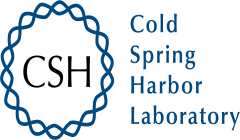Formula attenuates 99% of 365 coronaviruses in computer models

Cold Spring Harbor Laboratory published a preprint in BioRxiv of a study conducted by Eric Luellen which identifies a new promising universal coronavirus vaccine candidate. It attenuates 361 out of 365 coronaviruses tested (99%), including all known SARS-CoV-2 variants. The author released the formula to be freely accessible to help poorer countries have greater access to a vaccine to combat the pandemic.
"A key challenge with this pandemic is that coronaviruses keep recombining into new variants so long as they circulate. Because vaccines are cost-prohibitive for developing countries, new variants will keep emerging there and spread globally via mass travel for years," said Eric Luellen, the study's author. "Until a universal vaccine is widely available, new variants of this coronavirus and many like it will threaten humankind," said Luellen.
The Possibility of a Broader, More Stable, & Safer Traditional Vaccine
Traditionally, vaccines are made by attenuating or compromising a virus and delivering it to patients so their immune systems can learn to recognize and fight it without sickening them. Current approaches are gene therapies that focus on quickly evolving viral elements, rendering them less effective with each new variant. It learns to evade the immune system. This new approach focuses on amino acids in more stable non-structural proteins at coronavirus' roots.
"A growing body of scientific evidence … suggests that novel coronaviruses will continue to infect bats and other animal reservoirs and potentially emerge to pose a pandemic threat to humans. To counter future coronavirus outbreaks, the global scientific and medical research community should focus a major effort now on…the development of long-lasting, broadly protective coronavirus vaccines," wrote Dr. Anthony Fauci in the New England Journal of Medicine this year.

Subscribe To Our Newsletter & Stay Updated